A sad day for Benin’s often-praised democracy
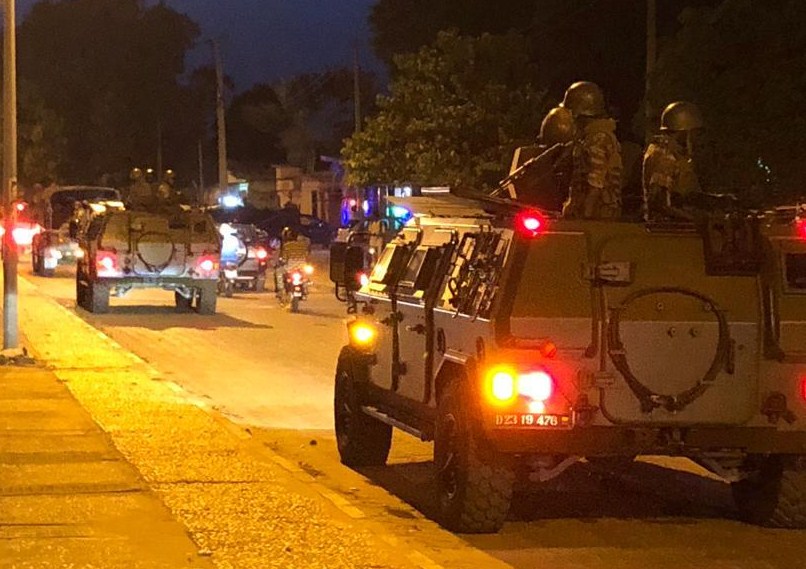
BY SOUMANOU SALIFOU
(Reporting by Damien Assogba)
It was the bad dream the vast majority of Beninese hoped would not come true, but it is happening: the legislative elections from which the Talon regime has excluded all the opposition parties are indeed taking place today, 28 April, with the huge majority of the citizens staying home in protest while tanks and heavily-armed soldiers are deployed on the streets across the main cities to guard against the so-far sporadic eruption of violence.
Benin’s interior minister Saca Lafia, whose office played a critical role in barring the opposition parties from taking part in the legislative elections, recently said on national television in reaction to the citizens’ determination to disrupt the elections unless the opposition takes part in them:
“Those who threaten to burn the country will be the first ones to be burned. Those who threaten to break everything will suffer multiple fractures.”
Saca Lafia is among several officials who work for Talon that are contesting the elections under the banner of the two parties close to their boss that Lafia’s office has cleared to contest the elections.
The minister’s violent rhetoric and the all-out efforts by Talon to bar the opposition from taking part in the elections are consistent with Talon’s history, a man who fled to France in exile in 2012 to avoid arrest for embezzling government funds, and, while there, attempted to poison the then-incumbent president Yayi Boni (as proven by the poison recovered by the judge who prosecuted the case) and allegedly plotted a coup to overthrow Yayi. After Talon’s two attempts to amend the Constitution were defeated in parliament, he felt the only way forward for his regime is to have total control over the legislative body by barring the opposition from the elections that will usher in the 8th legislature.
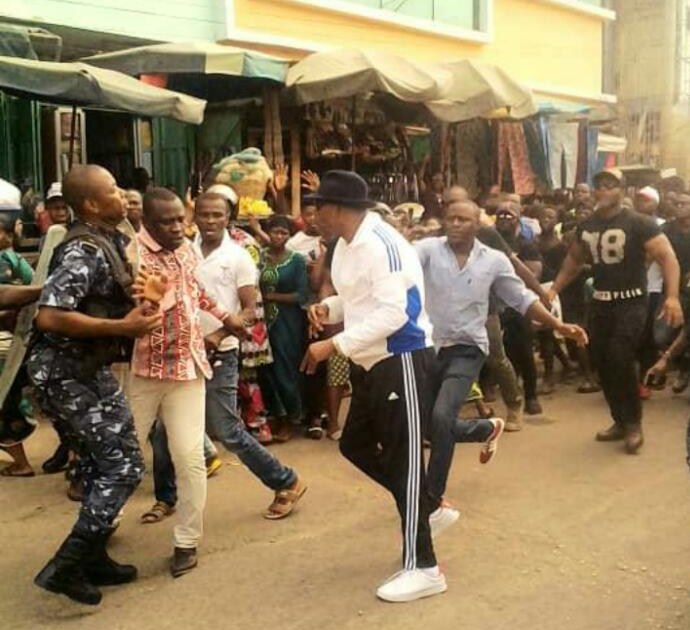
To carry out his threat to stop every possible attempt to disrupt today’s legislative elections, Talon, via his security forces, did not hesitate one bit to use tear gas, two weeks ago, on former presidents Yayi Boni and Nicephore Soglo, and Rosine Soglo, 83, the most senior (and understandably out-of-shape) legislator in Benin, while they were addressing a crowd in Cotonou’s main marketplace.
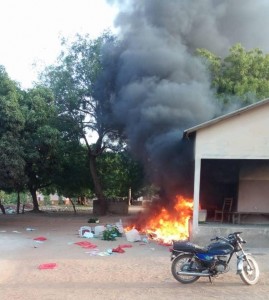
On the basis of article 66 of the Constitution that calls on the citizens to do anything to restore legitimacy when it happens to be threatened, the leaders of the opposition and the vast majority of the Beninese citizens have vowed to do anything to disturb the elections unless the opposition parties are allowed to participate. But, at the time of this writing in the early hours of 28 April, election day, there have been only a few acts of violence. These include voting stations set on fire and street protests in the north where some bare-handed citizens courageously challenged armed soldiers to “shoot us if you want.” Protesters also set on fire an administrative building in Tchaourou on Friday, in the central region, that were supposed to serve as a voting station. The police commissioner for that area was immediately fired for not being able to prevent that from happening. Tension was so high the election could not take place in that city, the birth place of former president Yayi Boni. Massive protests were also noticed in Parakou, the largest city in the north.
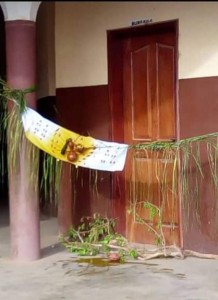
Election day in Benin, a country whose democratic progress has so far been hailed throughout the world, has always been a festive occasion. Not this time around. While the phone is still working at this time, 1 p.m. in Benin, the Internet and the social media have been cut off. So far, only a tiny number of voters have cast their ballots, but no major acts of violence has been reported, though one cannot be sure, owing to the Internet and the social media being cut off. Voting materials and election personnel are taken to the voting stations under heavy army guard. According to The African Magazine‘s reporter in Benin, even church attendance was lower than usual in Porto-Novo, the nation’s capital, and Cotonou, the largest city in Benin.
Typical of this nation that is known for its voodoo practices,
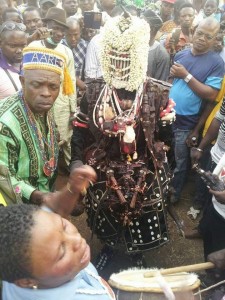
several voting stations have been covered with fetish, with voodoo priests daring anyone to venture there. In one instance, presumably as a result of the fetish, a bird that flew around that particular voting station dropped dead in front of the building.


